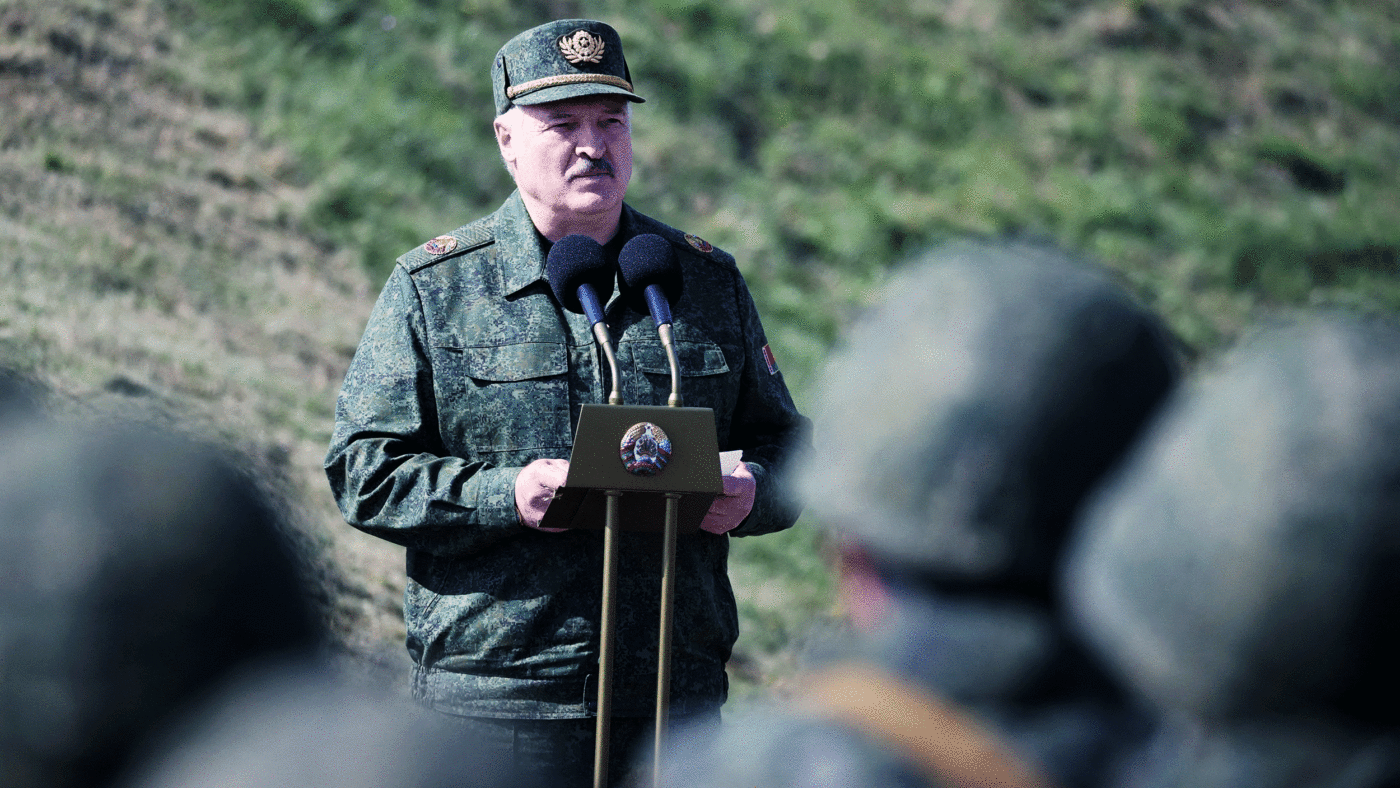Two-thousand migrants are trapped in freezing conditions in a no-man’s land between Belarus and Poland, being subjected to tear gas and water cannon. Though Belarusian President Lukashenko is under fire for allegedly encouraging people from Syria and Iraq to cross into the EU, many accuse Russian President Vladimir Putin of being the true ‘mastermind’ behind the crisis.
But to focus on Putin as the puppet master of smaller nations is to belie the personal responsibility of Lukashenko. In retaliation to the successive wave of EU sanctions imposed on Belarus following the disputed 2020 presidential election, Lukashenko threatened: ‘We used to catch migrants in droves here – now, forget it, you will be catching them yourselves’. Lukashenko has a reputation for ruthlessness, and remorselessness – and now revenge should be added to the list.
This process began in March, as the Belarusian government indicated they were intending to simplify visa proceedings for Iraqi ‘tourists’. This then enabled migrants to purchase plane tickets and fly with ease into Belarus with the intention of driving to the border, and crossing into Poland, Lithuania, or Latvia on foot. Meanwhile, in the Middle East, Belarusian travel agencies facilitated the issue, offering ‘packages’ including airfare, hotel reservations, and the necessary tourist visa.
The false promise of easy entry into the EU lured thousands of migrants to Belarus. The European Commission has condemned Lukashenko’s remorseless engineering of a European security crisis as ‘inhuman’ and ‘gangster-style’ tactics.
Testing Putin’s patience
Though Lukashenko is more politically and economically dependent on Putin than ever before, he is by no means submissive to the Russian President. In fact, Lukashenko has historically challenged this subversion and is proving to test Putin’s patience. Lukashenko still withholds formal Belarusian recognition of Crimea, after its annexation by Russia in 2014, whilst joking with Putin that he looks forward to his invitation to join him out there.
Most recently, Lukashenko threatened to cut off the gas which supplied Europe. He warned: ‘If they impose additional sanctions on us… we must respond.’ Referring to the gas pipeline that runs through Belarus and into the EU, he said: ‘We are heating Europe, and they are threatening us… and what if we halt natural gas supplies?’
Despite one-third of Russian gas running through Belarus to the EU, it remains Russia’s gas to cut. This is an action which Putin is highly unlikely to take, given his anxieties in securing Nord Stream 2 with Germany. On Friday, Kremlin spokesman, Dmitry Peskov proved just this, saying Lukashenko had not discussed this with Moscow and his actions were ‘not coordinated in any way‘ with Russia.
Franak Viacorka, a Belarusian journalist and adviser to opposition leader Sviatlana Tsikhanouskaya, likens the situation to ‘a small boy hiding behind the older brother… Lukashenko is trying to use the Kremlin and to threaten the West with the Kremlin, [but] very often not consulting [over] his statements with it.’
Whilst Russia has provided military, and even nuclear support to Belarus, Moscow is unwilling to blindly support Lukashenko – who is proving to be something of a loose cannon. Rather, the Russian slap-down of Lukashenko proves the engineering of the migrant crisis is not emanating from Moscow, but from Minsk.
Dangerous policy
The present crisis however, is not without its advantages to Putin. Since the escalation of the crisis, Russia’s foreign ministry spokeswoman, Maria Zakharova placed the blame and responsibility on Britain. Pointing the finger of blame at Britain and claiming a conflict between Eastern and Western values is beneficial to Putin.
However, focusing on Russian accusations, and resorting to a Cold War-esque narrative of Russia vs the West fails to recognise Lukashenko as an individual capable of threatening European security – an oversight which may have damning effects.
Furthermore, assuming Putin as the ‘mastermind” of the migrant crisis is not only inaccurate, but may actually escalate the crisis. Any policy made on this understanding will likely involve placing pressure on Moscow instead of directly on Lukashenko. There are two key problems with this. Firstly, there is no certainty that the Kremlin has any interest in policing Belarus; pursuing this response therefore only buys Lukashenko more time. Secondly, if Moscow are being punished for Lukashenko’s revenge on the EU, they may try to leverage the situation for their advantage. This could even involve using the Russia-Belarus Union Treaty to instal a Russian proxy.
Regardless of Putin’s involvement in the crisis, it is essential to recognise Lukashenko as a dangerous actor in the region in his own right. Resorting to Cold War narratives only serves to escalate the crisis further and plays into Putin’s hands.
Click here to subscribe to our daily briefing – the best pieces from CapX and across the web.
CapX depends on the generosity of its readers. If you value what we do, please consider making a donation.


